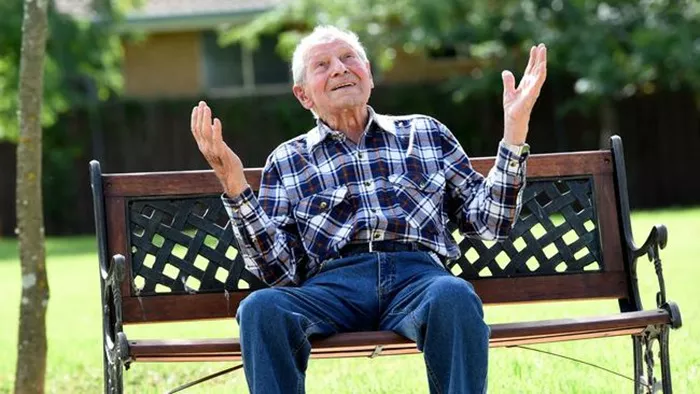The recent death of Maria Branyas Morera, the world’s oldest person at 117, has sparked curiosity about the secrets of long life. However, scientists advise caution when considering advice on longevity from centenarians themselves.
Branyas Morera attributed her longevity to a lifestyle marked by “order, tranquility, strong family connections, contact with nature, emotional stability, positivity, and avoiding toxic people,” according to the Guinness World Records website.
Despite these personal insights, Richard Faragher, a professor of biogerontology at the University of Brighton, warns that scientists are still grappling with understanding why some people live past 100. Faragher explains that there are two prevailing theories, which are not mutually exclusive.
The first theory suggests that some people simply have good fortune. This “survivorship bias” means that just because centenarians may have certain habits does not necessarily mean those habits contribute to their longevity. For example, surviving years of heavy smoking does not imply that smoking is beneficial, Faragher notes.
The second theory posits that centenarians may possess specific genetic traits that contribute to their extended lifespans, rendering them more robust due to their genetic makeup. However, both theories lead to a common conclusion: “Never, ever take health and lifestyle tips from a centenarian.”
Faragher points out that many centenarians often engage in behaviors contrary to established health advice. They frequently exercise less and follow diets that might be deemed unhealthy by contemporary standards. For instance, some centenarians have been smokers, a habit contradicted by extensive research suggesting that not smoking, regular exercise, moderate drinking, and consuming a diet rich in fruits and vegetables can extend life expectancy by up to 14 years.
While Branyas Morera acknowledged the role of luck in her longevity, her daughter Rosa Moret attributed it to genetics, noting in a 2023 interview that Branyas had never required hospitalization or experienced significant pain.
Faragher adds that many theories about centenarians’ longevity might reflect reverse causation. For instance, a positive mental outlook could be a result of good health rather than a cause of it. “When was the last time you had a really positive attitude while experiencing toothache?” Faragher questions.
Professor David Gems, a geneticist at University College London, concurs that while genetic factors play a role in longevity, luck is also a significant factor. He uses nematode worms, which, despite being genetically identical and kept under the same conditions, show a natural variability in lifespan—from around 10 to 30 days—as an example of this variability.
While individual luck may explain why some people exceed 100 years of age, experts acknowledge that broader factors contribute to improved life expectancy. David Sinclair, CEO of the International Longevity Centre, highlights advancements in healthcare and hygiene, such as vaccines and clean water, which have significantly increased life expectancy over the past century. He emphasizes the importance of continued focus on improving health for the elderly, including better vaccines and medications.
Sinclair also underscores the need for governments to support healthier lifestyle choices to help individuals live longer. He notes that many people face environmental challenges that hinder their ability to exercise, eat well, or avoid pollution.
Despite the impressive longevity of some individuals, Sinclair cautions that living into triple digits does not guarantee a life of unmitigated happiness. News stories often focus on the celebratory aspects of centenarians, but the reality can include challenges such as prolonged isolation.
“The reality is not always as positive as it seems,” Sinclair concludes.
[inline_related_posts title=”You Might Be Interested In” title_align=”left” style=”list” number=”6″ align=”none” ids=”730,766,738″ by=”categories” orderby=”rand” order=”DESC” hide_thumb=”no” thumb_right=”no” views=”no” date=”yes” grid_columns=”2″ post_type=”” tax=””]

































